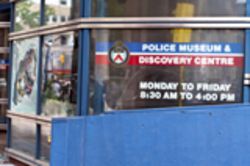Documents show cabinet spent little time on secret G20 change
Robert Benzie
A controversial G20 policing measure rubber-stamped by Premier Dalton McGuinty’s cabinet was one of at least 116 orders-in-council signed in a flurry of end-of-session moves last month, the Star has learned.
Cabinet records depict a mad scramble of housekeeping activity as the spring legislation sitting concluded, suggesting little time was devoted to debating the secret regulatory change.
A more typical cabinet meeting would have 30 to 40 orders-in-council on the agenda, and sometimes as few as 20.
According to documents finally made public Monday — after the Star submitted five written requests from June 7 to July 23 — the June 2 cabinet meeting was a bustling affair as MPPs prepared to break for the summer.

McGuinty’s office insisted nothing fell between the cracks despite the hectic pace.
“Ontarians expect their government to make many decisions every day including growing our economy to create jobs, improving our schools and health care and ensuring security,” said press secretary Jane Almeida.
At the June 2 meeting, Ombudsman André Marin, who is now investigating the G20 security debacle, and Environmental Commissioner Gord Millerwere re-appointed to five-year terms.
There were also dozens of appointments to provincial panels such as the Criminal Injuries Compensation Board, the Ontario Council of the Arts, the Ontario Investment and Trade Advisory Council, and eHealth Ontario’s board of directors.
Six deputy ministers’ appointments were finalized on June 2, as was the proclamation of the Ontario Tax Plan for More Jobs and Growth Act, the legislation that blended the 8 per cent provincial sales tax with the 5 per cent federal goods and services into a 13 per cent harmonized sales tax as of July 1.
Perhaps the most notorious item of business was cabinet’s designation of areas within the G20 security zone around the Metro Toronto Convention Centre as a “public work” under the 1939 Public Works Protection Act.
Ministers made the temporary change at the request of Toronto Police Chief Bill Blair, who sought clarification for officers if they had to stop anyone inside the restricted area where world leaders were meeting June 26-27.
The Star first revealed the unusual modification on June 25, three days before it was to have been officially revoked and eight days before it was published in the Ontario Gazette.
In the wake of that story, there was an erroneous impression that police had been given the power to arrest people who refused to provide identification or submit to a search within five metres of the zone’s outer perimeter.
But Blair, McGuinty and Community Safety Minister Rick Bartolucci, who defended the “extraordinary” powers throughout the G20, did not set the record straight until two days after the summit had ended.
In his most recent public statement, the premier, who returned to work Monday after two weeks’ vacation, conceded his government fuelled the ambiguity.
“There was some confusion obviously surrounding ‘five metres.’ There was no five-metre rule. It was constantly published in print and republished on TV and radio and there was no foundation in fact for that,” McGuinty said July 7.
“And we should have acted on that sooner to make it clear.”
While only 116 orders in council were released Monday, gaps in the numbering of the documents indicates dozens more were signed at the meeting. Government officials could not explain the discrepancy.
Ironically, “Ontario Regulation 233/10 made under the Public Works Protection Act” was not among the 116 documents put out by Cabinet Office, the provincial government’s executive branch.
That’s because once the regulation was signed by Lieutenant-Governor David Onley, a certified copy was given to the ministry of community safety, which then filed it to the ministry of the attorney general’s registrar of regulations.
The attorney general’s department electronically posted it June 16 to e-Laws, a specialized provincial legislation website usually pored over only by lawyers.
Aside from Marin’s G20 review, the Toronto Police Services Board is conducting a civilian examination of police governance and policy due to the mass arrests and rioting in downtown Toronto during the summit.
Both McGuinty and Prime Minister Stephen Harper have ruled out holding public inquiries into the imbroglio.
Source: http://www.thestar.com/article/840529--documents-show-cabinet-spent-little-time-on-secret-g20-change



